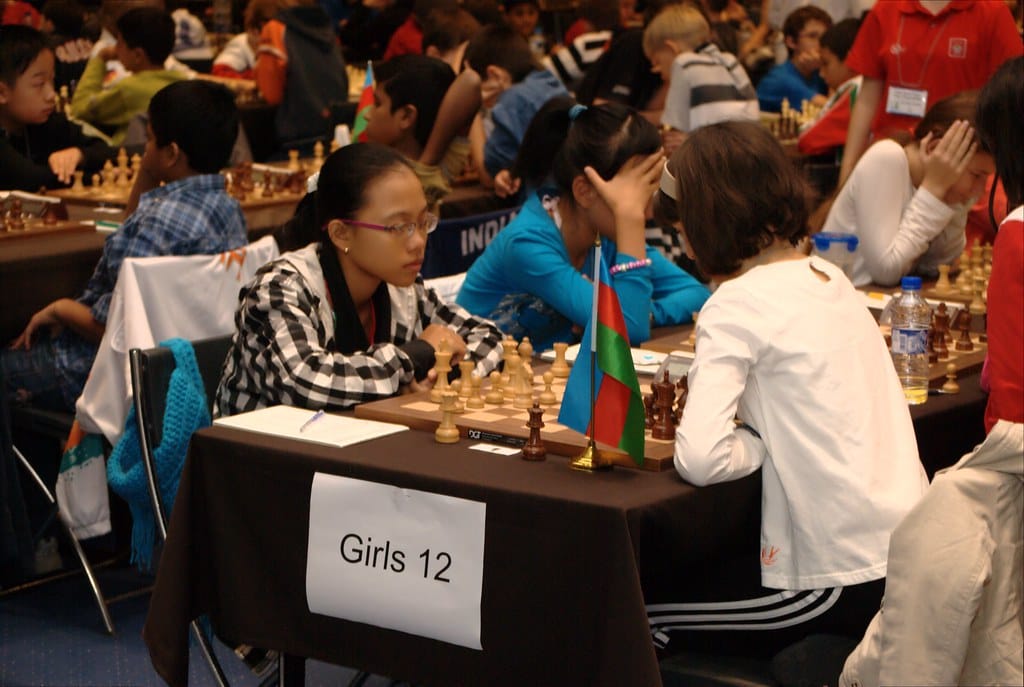When Chess Genius Meets AI: Magnus Carlsen Defeats ChatGPT in Strategic Showdown
In a fascinating clash between human intuition and artificial intelligence, chess grandmaster Magnus Carlsen recently defeated ChatGPT in a game that highlighted both the remarkable capabilities and surprising limitations of modern AI. The match, which captured the attention of chess enthusiasts and tech observers alike, offers compelling insights into where AI excels—and where human expertise still reigns supreme.
The Match That Caught Everyone's Attention
The game unfolded as many had predicted it might: Carlsen, the five-time World Chess Champion with an ELO rating that has peaked at 2882, systematically outmaneuvered the AI language model. What made this encounter particularly noteworthy wasn't just the outcome, but what it revealed about the different types of intelligence at play.
ChatGPT, despite its vast training on chess games and theory, struggled with the kind of deep positional understanding and long-term strategic planning that defines elite human play. While the AI could discuss chess openings fluently and explain tactical concepts clearly, translating that knowledge into consistent, high-level play proved challenging.
Understanding the Limitations of Language Models in Chess
This result shouldn't come as a complete surprise to those familiar with AI development. ChatGPT is primarily a large language model designed for conversation and text generation, not a specialized chess engine. Unlike dedicated chess programs such as Stockfish or AlphaZero—which can defeat any human player—ChatGPT processes chess moves as text rather than understanding the game through specialized algorithms optimized for chess calculation.
The distinction is crucial. Specialized chess engines can calculate millions of positions per second and evaluate complex tactical sequences with precision that far exceeds human capability. ChatGPT, by contrast, must rely on pattern recognition from its training data and general reasoning abilities, making it vulnerable to the kind of subtle positional play that Carlsen executes masterfully.
Why This Matters Beyond Chess
The Carlsen-ChatGPT match illuminates broader questions about AI capability and specialization. While general-purpose AI models like ChatGPT demonstrate remarkable versatility across numerous domains, they often fall short when compared to specialized systems designed for specific tasks.
This has significant implications for how we think about AI deployment in various fields. In medicine, for instance, specialized diagnostic AI systems often outperform general-purpose models when analyzing specific conditions. Similarly, in finance, purpose-built algorithmic trading systems typically exceed the capabilities of general AI models in market analysis.
The Human Element in Strategic Thinking
Carlsen's victory also underscores something uniquely human: the ability to blend intuition with calculation, experience with innovation. Throughout his career, Carlsen has been known for his exceptional endgame technique and ability to create winning chances from seemingly equal positions—skills that require not just calculation but deep positional understanding developed over years of study and play.
The Norwegian grandmaster's approach to the game demonstrated how human expertise involves more than just processing information. It encompasses pattern recognition honed through experience, intuitive evaluation of positions, and the ability to make decisions under pressure—qualities that remain distinctly human advantages.
Lessons for AI Development
This encounter offers valuable insights for AI researchers and developers. It suggests that while large language models excel at many tasks, domain-specific challenges may require specialized approaches. The chess world has already seen this with engines like AlphaZero, which learned chess through self-play and demonstrated superhuman performance.
The match also highlights the importance of understanding AI limitations. As organizations increasingly integrate AI into their operations, recognizing where general-purpose models excel and where specialized solutions are needed becomes crucial for successful implementation.
Looking Forward
While ChatGPT's loss to Carlsen might seem like a step backward for AI, it actually represents progress in our understanding of artificial intelligence. By clearly delineating the boundaries between different types of AI systems, we gain better insight into how to develop and deploy these technologies effectively.
The game serves as a reminder that human expertise retains tremendous value, even in our increasingly automated world. Rather than viewing this as AI versus human intelligence, we might better understand it as different types of intelligence serving different purposes—each with unique strengths and applications.
As AI continues to evolve, matches like this help us appreciate both the remarkable achievements of artificial intelligence and the enduring value of human insight and expertise.
